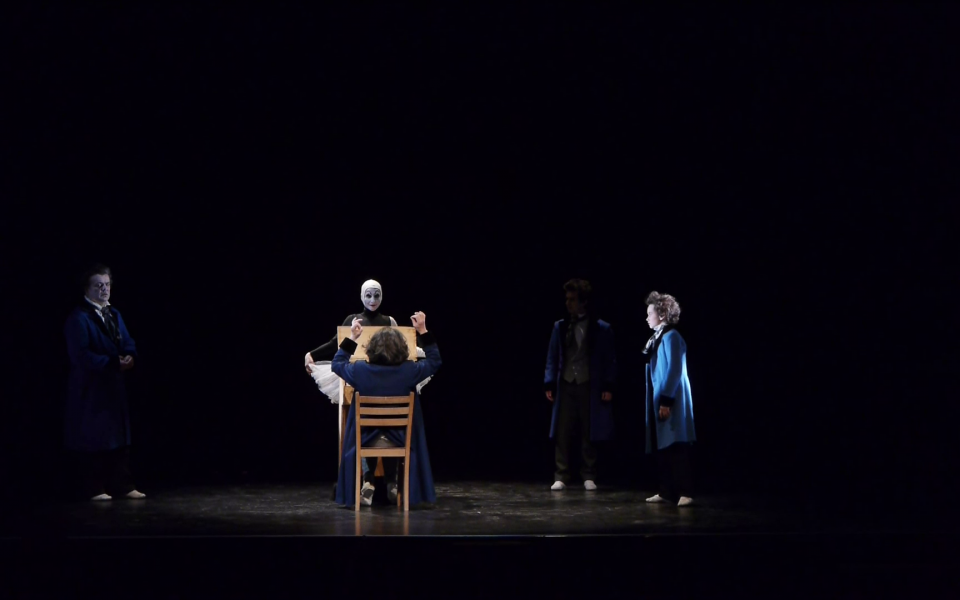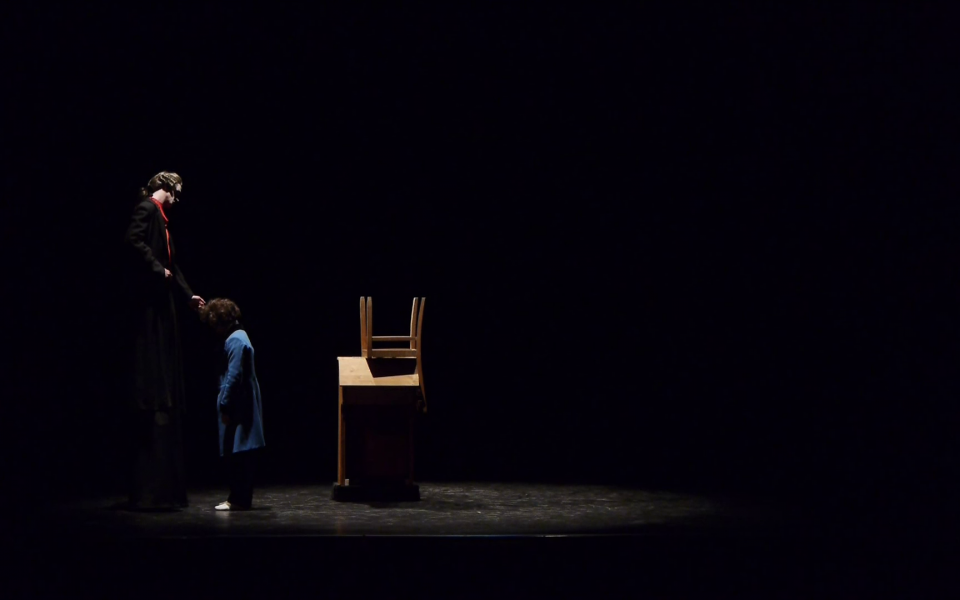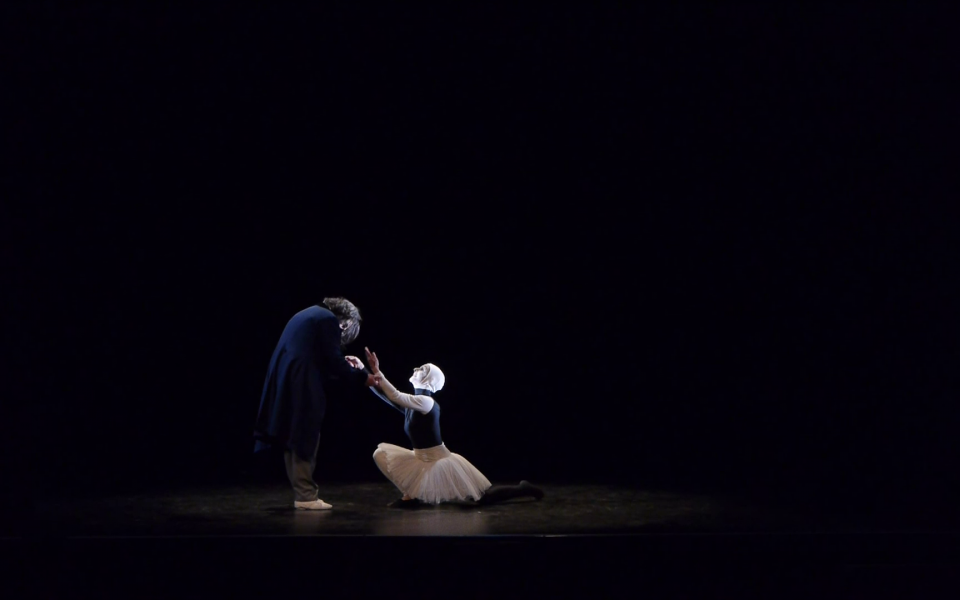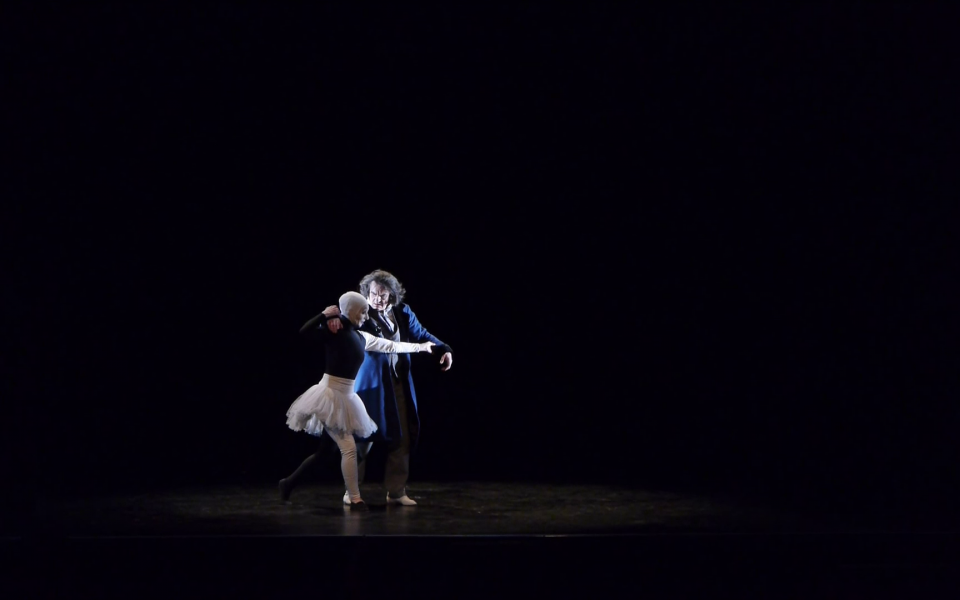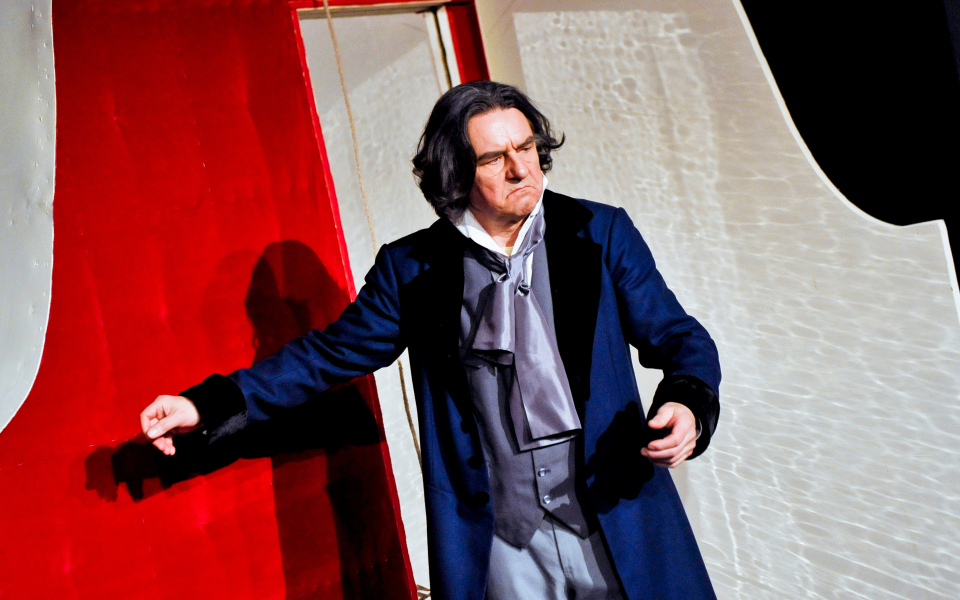The stage production“Beethoven ohne Musik” (Beethoven without music) is a new interpretation of the composer’s tragic biography. The audience is taken on a trip to Beethoven’s inner life and gets to experience his story completely without music. Theatre director Tom Quaas created a play without language – a unique stage piece which is understandable throughout the world.

Cast:
Tom Quaas |Therese Schmidt | Wolfgang Krause-Zwieback | Frank Auerbach | Wagner Moreira | Edgar Dieble | Carl Becker | Marie Bretschneider | Martin Kiefer | Rose Vischer | Paula Henke-Quaas

Content:
… An orchestra is floating in an empty space. Ghostly musicians tune their instruments. Beethoven stands still and listens. Brass and string players set their instruments. A maestro indicates the beginning of the concert and starts to conduct the orchestra. Beethoven hears – nothing. Overwhelmed with fear, Beethoven starts to run. He keeps running and finally jumps into the cooling water of a lake. Entwined water plants are right underneath him in the deep of the water, while the stars glow above him in the velvet blue dark of the night sky. Beethoven feels his heartbeat and hears the first sounds of a great symphony in his head…The young Beethoven was not even thirty years old, when he noticed the first signs of chronic hearing loss influencing his entire life and career. The sound of his compositions was becoming more and more utopian and fanciful, but he could not hear anymore the music he created. Beethoven suffered dreadfully from this loss and the social isolation. However, his pain and otherness enabled him to compose music that is a piece of mankind’s history.
After “Faust ohne Worte” (Faust without words), theatre manager and director Tom Quaas stages Beethoven’s life and the story of his increasing deafness as a deeply sad comedy. Quaas plays with the technique of illusion – omitting only one thing: music. With his ensemble of actors, dancers, pantomimes and clowns, he searches for a visual translation of music and its meaning for the deaf composer, for people who have never heard anything in their lives, and for every single one of us.
Helmut Oehring, composer and son of deaf parents, developed a composition without actual music, a sort of sound compression for one scene of this stage production by Theaterzirkus Dresden.
The role of Beethoven is performed by Wolfgang Krause-Zwieback. The composer’s younger egos are played by Carl Becker and Edgar Diebler, students at the Palucca School of Dance Dresden; furthermore by Brazilian dancer Wagner Moirera and by actor Frank Auerbach. The opponents are: the immortal beloved, performed by actress Marie Bretschneider; a demon, embodied by Martin Kiefer aka Clown Thete; a musical note, personated by the actress Rose Vischer; and theatre manager Tom Quaas himself. Additionally, an orchestra is at least seen: the Dresden Sinfoniker under the direction of Markus Rindt, in cooperation with conductor Michael Helmrath. The staging was created by a directorial team consisting of opera director Therese Schmidt, illusionist Manuel Muerte, French clown director Yvo Mentens, stage and costume designer Tilo Schiemenz and Tom Quaas.





